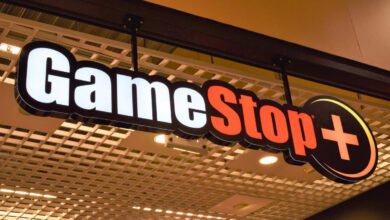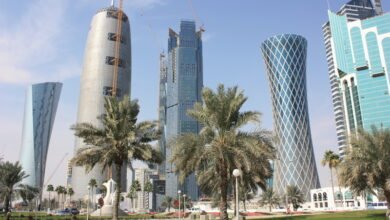Investment in 80-point rotary parlour at Carmarthenshire dairy farm | Farm News
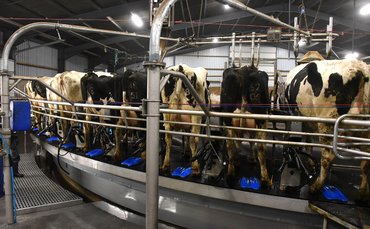
There is a long history behind the Bevan family, with the ninth generation, Chris and Vicky, now farming in partnership with Chris’s parents Roy and Angela at Eastpool Farm on the Carmarthenshire coast.
Roy started dairying in 1976 following over 200 years of the family farming in the area. And Chris began milking the herd of 150 Holsteins in the 1990s, through a 10/20 herringbone parlour.
“We had beef at that time, but I wanted to focus on dairy. I have spent the last 25 years concentrating on milk and along the way I have been fortunate enough to grow the herd to the 700 it stands at today,” says Chris.
Replacements
The closed herd continues to experience bovine TB setbacks, losing 100 cows last year. However, even with a 35 per cent replacement rate Chris is prevailing and continuing to grow the number of cows in milk.
In 2023 he started milking through an 80-point DeLaval E300 rotary parlour installed into a newly erected shed complete with a new draft and exit system.
Installed by Lloyds Dairy Centre, the move saw Chris go from a 43/86 parlour with parts dating back to the 1990s, to a parlour that milks his 700 cows in just two hours with two people.
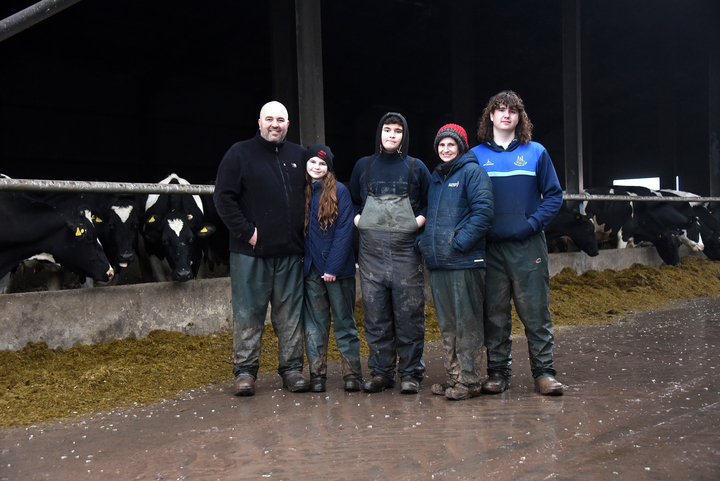
Chris says: “I started with my father’s 10/20 parlour and slowly expanded over 25 years to keep my overheads as low as possible. I went to 12/24, then 18/36, before extending the shed to accommodate a 27/54, and finally a 43/86.
“When we upgraded to the 43/86 parlour it took three hours to milk 450 cows. When we reached 600 it was nearly five hours which was not sustainable for us and was having an effect on cow health.”
Waiting times were too long and the decision to replace the whole parlour was made, along with a commitment to grow the herd to at least 700 in milk.
DeLaval
“To make the final extension to the old parlour it only cost me £1,600 for a second hand 16/32 parlour that I bolted on to the 27/54. I am indebted to former DeLaval dealer Llifon Evans, who at the time would find me second hand equipment because he knew I was always looking to grow but needed to control my costs.”
With no significant investments in infrastructure for more than 10 years, Chris was able to start planning and saving for the next big move.
Read also: Forage foundation for new dairy business in Northamptonshire
“My children were starting to show an interest in the farm and I knew that only a big change would make it sustainable for them to milk here in the future. I always say you will not regret going bigger in farming, the only regrets are when you do not go big enough.”
And, with this mantra, he installed one of the largest parlours in Wales. The E300 80-point rotary is fitted with DeLaval’s Evanza clusters, has a single lane draft, and features both FastBail and FastExit to improve cow flow and maximise milk yield.
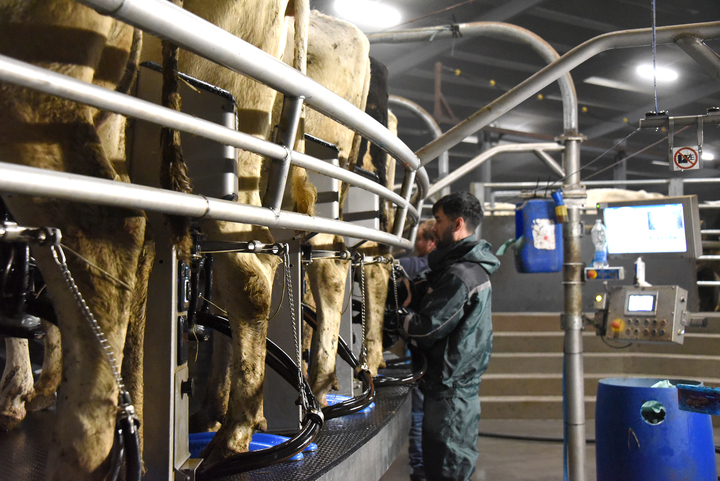
Chris says: “We are seeing more milk already, but the more fundamental benefit for me is the speed and the way the cows have taken to being milked by the rotary.
“The unique 15 degree angle of the fast bail means they can walk straight on and they rarely hesitate which makes it easy to have the rotary completely full with no gaps. The angled bail also helps cows to exit easily and quickly.”
See also: Welsh dairy farm streamline efficiency with business overhaul
He suggests there was an option to go for a 50-point with retention bars or have 70 points without. During the process he learned that specifying more than 72 points saw the parlour benefit from two additional receiving jars and an additional set of drive units.
“The additional drive offers further peace of mind that the rotary will always operate should one set fail.
Futureproof
“When I evaluated the cost of building the shed and all the components needed to build a new parlour it became clear that going bigger was a futureproof option that would only add about 5 per cent to the overall installation cost.”
Two members of staff are now milking 700 cows in two hours, with the rotary set to a 10-minute rotation.
One milker wipes while the other prepares the clusters which feature technology that increases flow and reduces the frequency cartridges need to be changed.
Chris was also drawn to the DeLaval rotary because of the efficient pulsation system.
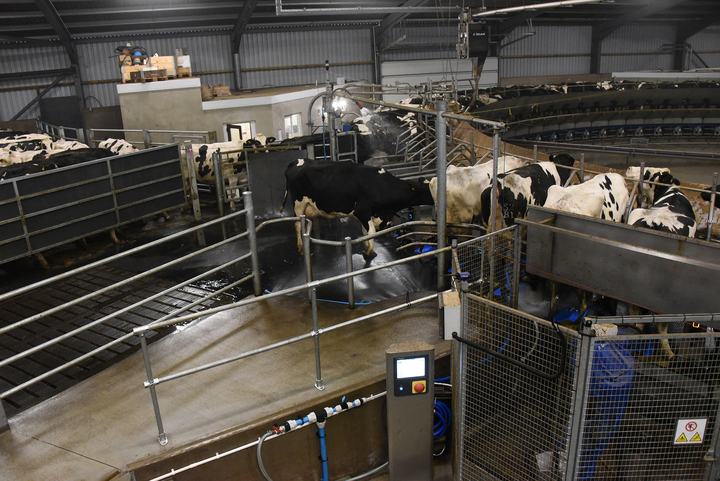
He says: “We can change the liners in a fraction of the time of the old clusters. However, the pulsation is no different to what I had on the old parlour, and this is a good thing because we had very few problems. Any issues we did have could be solved easily with little more than a screwdriver to remove and clean out any blockages.”
As the herd grew, Chris was equally aware of having a new handling system in conjunction with a new parlour.
Digital dermatitis was on the increase, due largely to waiting times, and part of the new parlour brief was to provide a better footbath for the herd.
Herd health
“DeLaval and our builder, Richard Bleddyn, designed good separation areas that enable us to look at cows and assess if they need help.’
A new three metre long Hoofcount footbath has been added so cows take two strides through it. It also self-renews after 150 cows and has all but eradicated cases of digital dermatitis.
“Richard’s concreting job was also spot on and the way the cows move around the farm now is a big improvement,” says Chris.
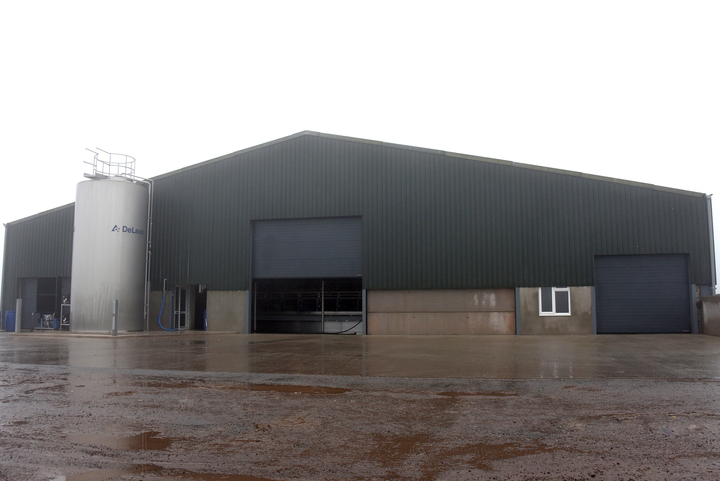
With the construction work complete, milking started in May 2023. Since then, Chris has been learning to make use of the plethora of data obtained by DeLaval’s DelPro software.
The staff are also benefiting from teat spray robot (TSR) which has helped to speed up milking.
Chris says: “Having gone from a parlour with just ACR, ATL, and auto ID with no milk measurements, we have been overwhelmed with data. However, it has already helped with AI, cull decisions and feeding accuracy.
“We were manually sorting, and the new drafting gate is fantastic because we can schedule cows to be locked in and they will be kept aside.”
See also: Common but avoidable causes of death in livestock
Despite installing such a technologically advanced parlour with the capability to milk twice his herd size, Chris is measured in his approach to growth.
His system is traditional and, while the parlour has been a significant investment, he is not choosing to chase ever increasing milk yields. Instead, he wants to keep tight control of his overheads and concentrate on cow health.
Grass
“We graze the herd, and I do not want to change that. It makes sense economically and I like to see the cows in the fields, I think it is important for them, and consumers. However, TB has always been an issue, so having sufficient replacements is always a concern,” he says.
In a traditional grass-based system Chris has chosen to feed whole milk to calves to reduce dependence on bought-in supplements. He also only feeds milkers concentrate in the parlour.
“We accept the yield is reduced by keeping to a grass diet, but we have good south facing, fast draining, red sandstone land so we can grow good grass and maximise our milk from forage.”
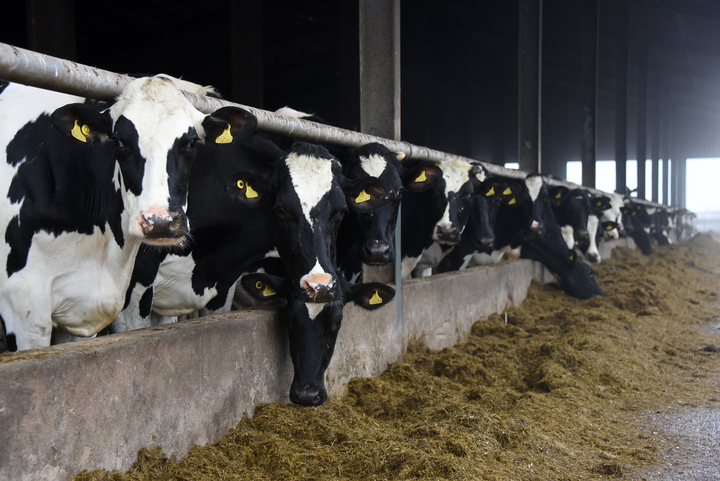
He has also chosen not to rely on the plethora of expensive machinery that some farms prefer to manage their grass and feeding. He suggests that by not having a feeder wagon and delivering silage in blocks using a sheer grab, he also saves on a tractor.
“The boys can manage feeding with the JCB in 15 minutes. It is easy, and even though June 2023 saw a drought that set back the green harvest, we have been able to react by adding a blend on top of the silage blocks.”
He farms 364 hectares (900 acres) in total which is all set to grassland and a wholecrop. A relationship with a neighbouring farmer has seen an agreement to make best use of his slurry and Chris is already calving out additional slurry storage to meet the demands of Welsh NVZ laws.
“There is no standing still in dairy farming, especially at the moment. I believe it is a case of grow to meet the demands of modern buyers and that is why I have made the investment in the parlour.
“My children want to take on the farm and I believe it is reaching the point where I can start delegating to give them the chance my parents gave me,” says Chris.
Farm Facts
- 97ha (240 acres) with a further 276ha (660 acres) for silage
- 700 cows in milk
- 700 followers (35 per cent replacement rate)
- 8,000 litres per cow per year at 4 per cent butterfat and 3.35 per cent protein
- SCC 150
Source link

